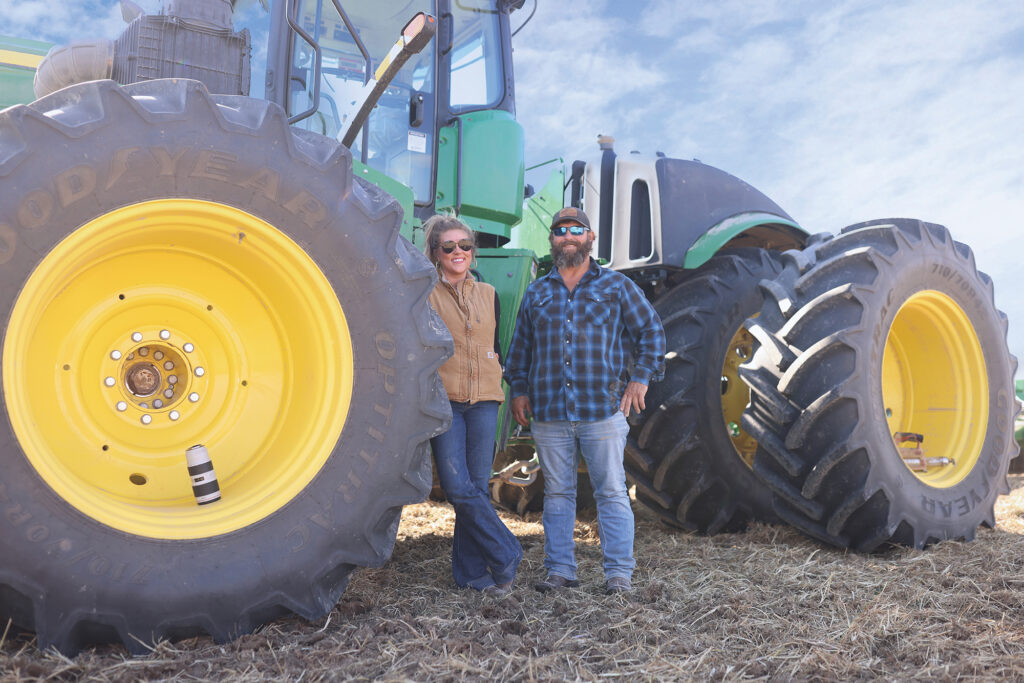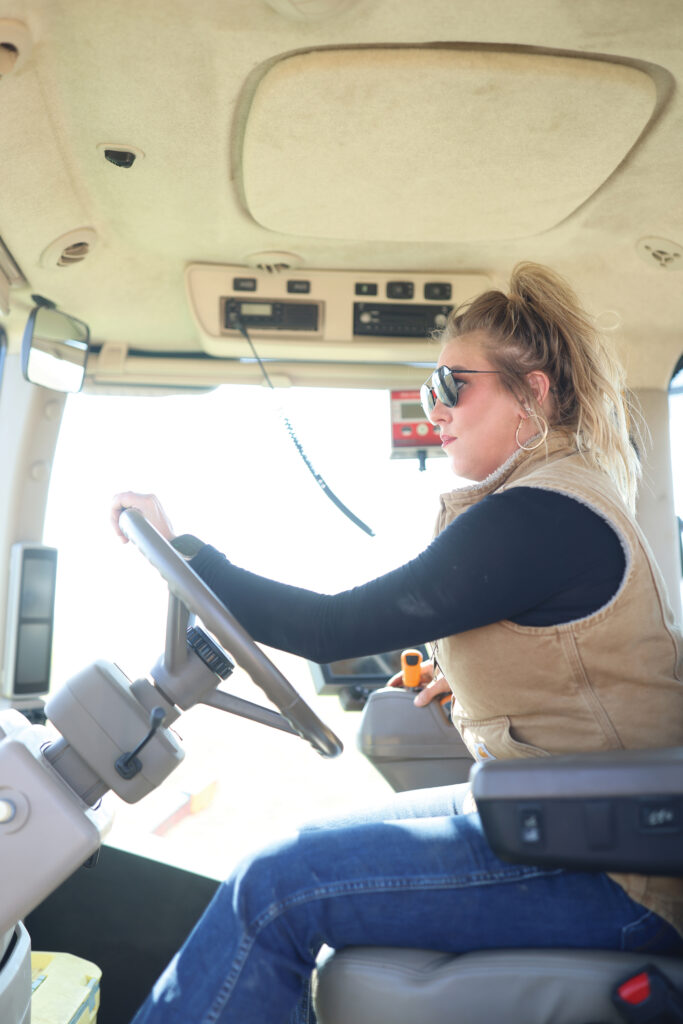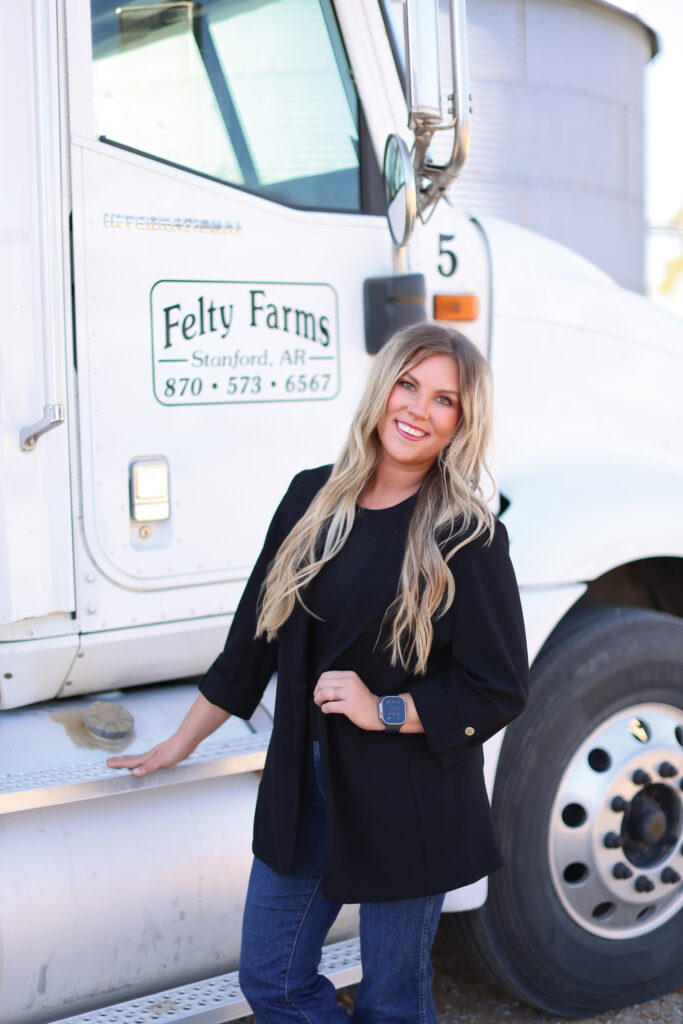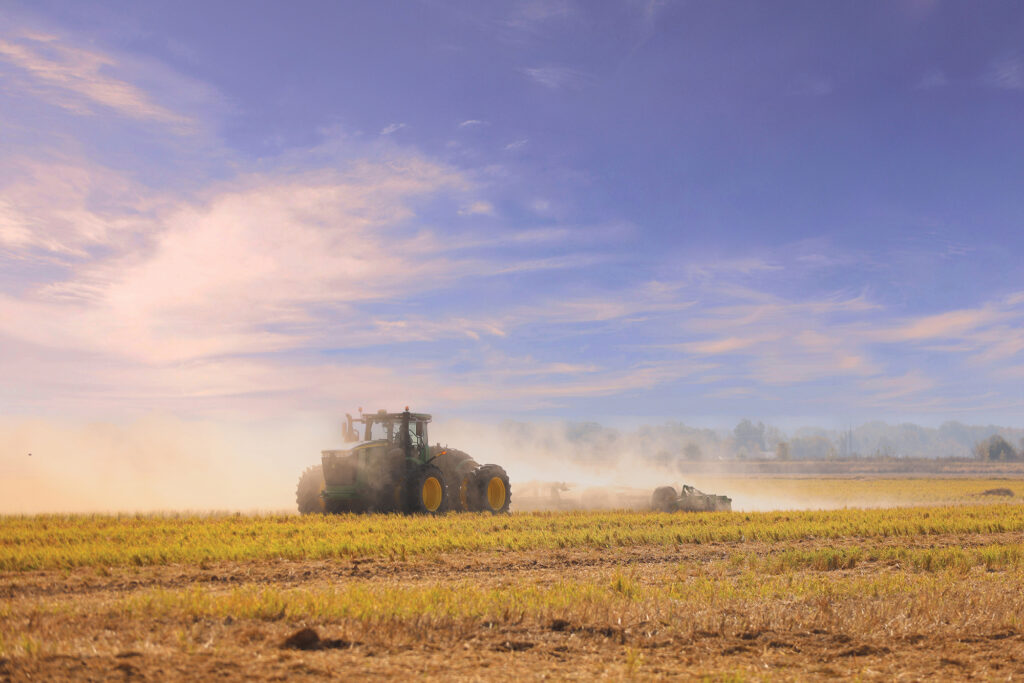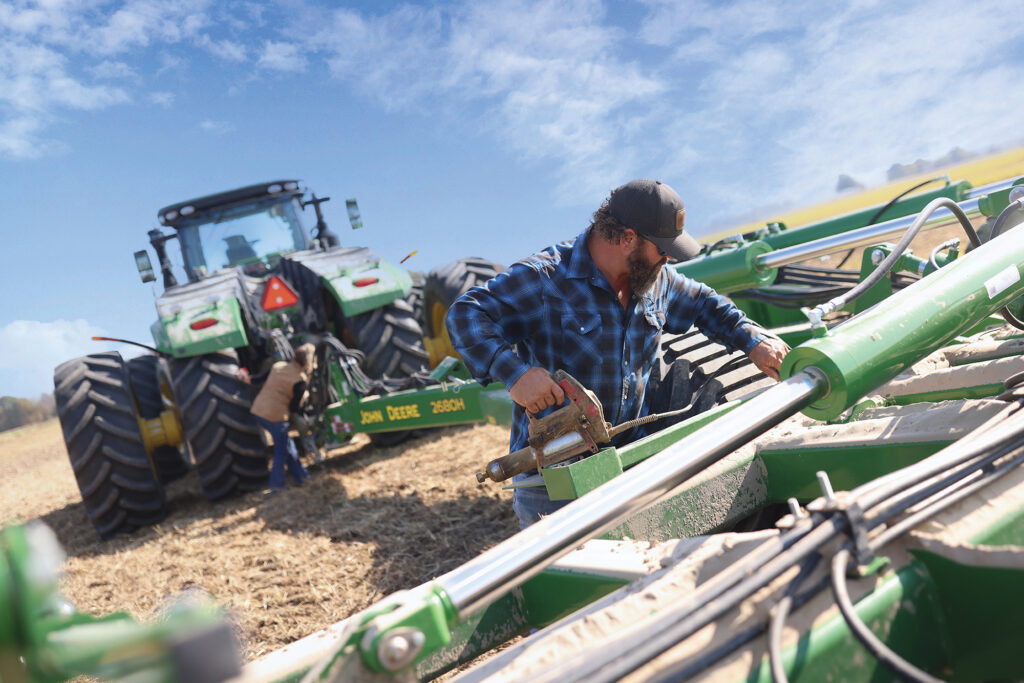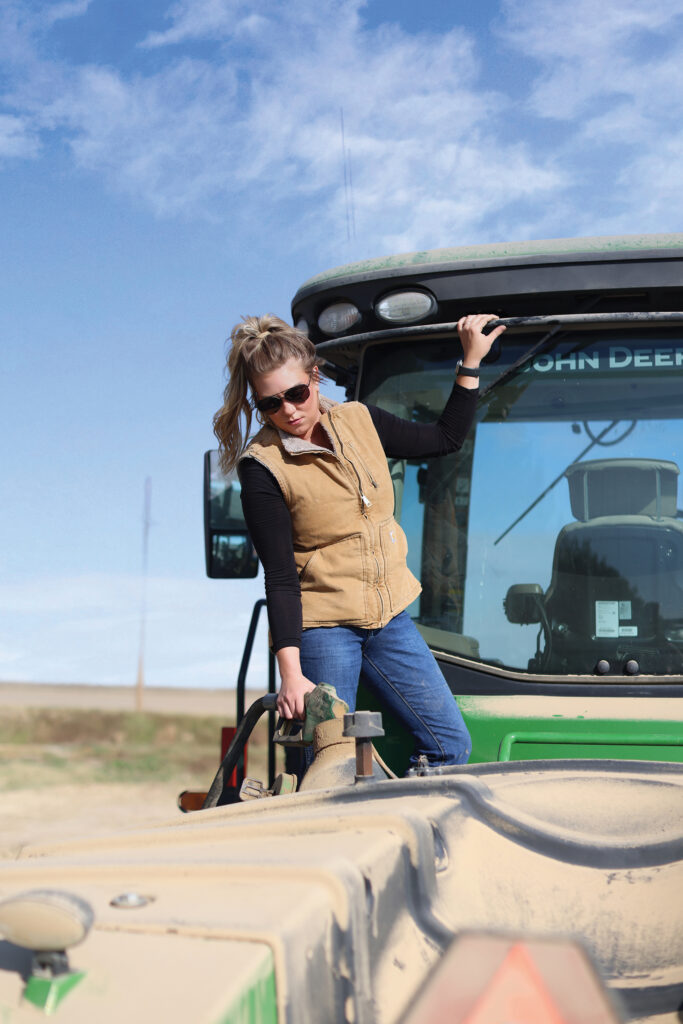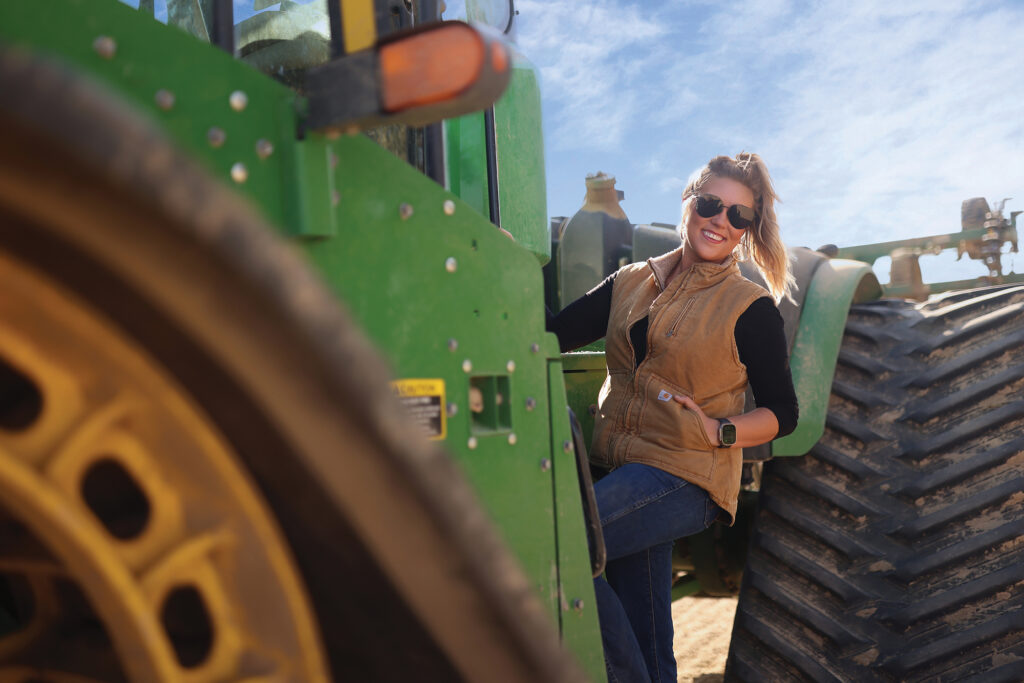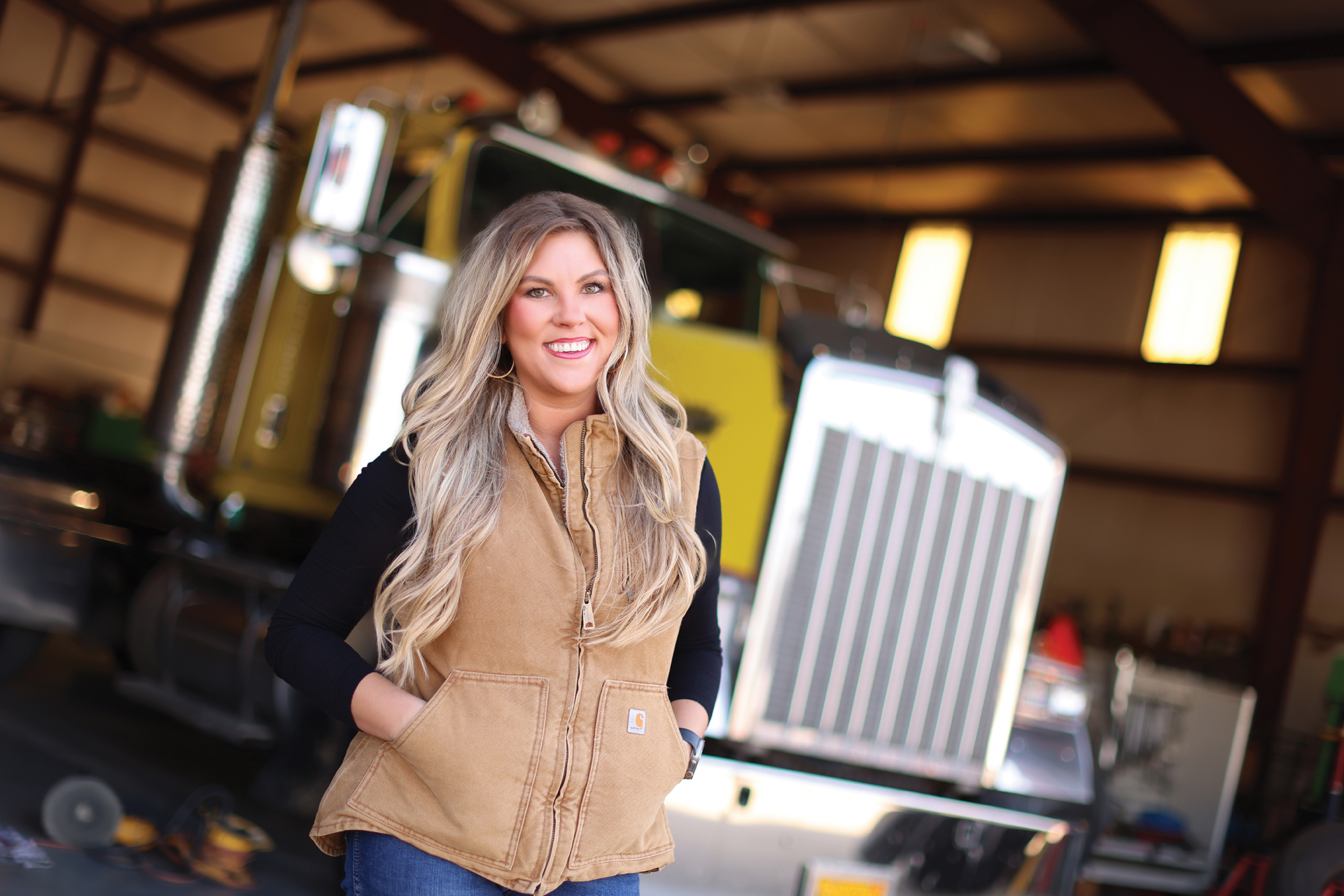
A Dream Takes Root
November 15, 2024
Written By Adam Buckallew
Third-Generation Arkansas Farmer Steps Up for Her Family
In the flat, fertile farmland of Greene County, Ark., where the horizon stretches unbroken and the sky can seem endless, Mikka Felty farms the same land her family has cultivated for three generations. Here in the heart of the Arkansas Delta, vast, irrigated fields of rice and soybeans are precision-leveled to perfection. During the growing season, the fields are a lush sea of green; by fall, they turn a golden hue, mirroring the soil’s richness. For Mikka, this land represents not only her family’s past but also its future—a future she’s committed to building with the same care and resilience that has sustained the family farm for over 70 years.
Felty Farms, located northwest of Paragould, was founded by Mikka’s grandparents, Bonnie and Emma Lou Felty, who married in 1949 with 10 acres of land and just $200 to their name. From those humble beginnings, they built the multigenerational farm that Mikka now steers through a period of change and growth.
The farm has grown exponentially in size and technology. Alongside her uncle, Philip Rowe, Mikka and her family raise about 5,000 acres of row crops, primarily rice and soybeans, with some rotational corn and wheat. Ninety-nine percent of the acreage is irrigated, with much of the land precision-leveled to zero grade to create uniform, flat fields perfect for flood-irrigated rice.
Following Her Heart
Mikka, 34, grew up dreaming of farming but took an unconventional path back to the family farm. After high school, she attended the University of Tennessee at Martin, where she earned a degree in nursing.
“I always knew I wanted to farm, but the question was when the timing would be right,” Mikka says.
Mikka enjoyed working as a labor and delivery nurse for eight years, but farming remained her ultimate goal. After her first four years in nursing, she began working part-time in the hospital, allowing her to spend more and more time helping on the farm.
When her grandfather died in 2019, and her father, Gary’s, health began to decline due to a long battle with prostate cancer, Mikka knew the time for her return to farming full-time drew close. She officially jumped into full-time farming in 2020.
“I was nervous about leaving nursing behind, but I knew in my heart it was the right thing for me, and it felt like the right time,” Mikka says.
Her grandfather, Bonnie, had always believed in Mikka’s ability to return to the farm, and with the support of her family, Mikka embraced the change wholeheartedly.
Big Changes
Mikka’s return to farming coincided with a period of personal loss. In 2021, her grandmother, Emma Lou, the matriarch of the family, died, followed by her father, Gary, in 2022. Suddenly, Mikka found herself at the helm of the family farm, balancing the emotional weight of loss with the practical realities of running a business and navigating the complexities of the estate plan.
“There was so much change in such a short time,” she recalls. “I’m lucky my family had put together a plan. That helped us navigate the estate side of things while I was busy running the farm.”
One moment that stands out to Mikka was the day of her father’s passing, when she realized she needed to order fuel for the farm—something her father had always done. Mikka and her family rely on diesel fuel to keep their equipment running and power the many irrigation pumps that keep their crops watered. They have two, 10,000-gallon bulk fuel tanks that need to be refilled multiple times a year to keep up with the demands of their nearly 5,000-acre operation.
“I’d never ordered fuel before,” she says. “I called MFA Oil in Lake City, and they were so helpful in walking me through the process. It was one of those small things I hadn’t even thought about until I had to do it myself.”
Though much has changed in recent years, Mikka is committed to preserving the agricultural legacy her family built over the decades.
“We haven’t made drastic changes, but we’re always looking for ways to improve and make things better,” she says. “Farming has changed so much, and the numbers are huge now. The input costs are big, and you can’t get complacent. If you do, you risk falling behind.”
Mikka takes pride in working the same land where she used to pull weeds as a child alongside her grandpa.
“We have made some small changes from the way my dad and grandpa did things, but those little improvements have made a big difference,” she says.
Mikka is quick to credit her mother, Vicky, and especially her cousin Karey Joe, a dedicated farm manager, for supporting her as she’s taken over the family farm. She is adamant that without the encouragement and support she received from family and friends, her journey would have been much more difficult.
“I’ve had the most wonderful people in my corner,” Mikka says. “They’ve helped me realize my capabilities. They also helped me realize I need to delegate more often. There’s a tendency to want to do things myself, but trusting the people who work alongside you is key. You can’t do it all.”
Among other lessons, Mikka has learned its okay to ask for help, to seek others opinions, but also to trust her gut instincts.
Seeing the Big Picture
One of the most substantial parallels Mikka has found between delivering babies and managing a farm is how both professions rely heavily on data.
“I’m a numbers person,” Mikka explains. “In nursing, you’re constantly looking at vital signs like heart rate—numbers that can alert you if something is wrong. Farming is the same way. We monitor many things like soil health, yields, labor costs, insurance rates and other expenses. The numbers don’t lie. They’re the vital signs of the farm. If your numbers get out of line, that’s a warning sign.”
Just as a nurse reads a patient’s vitals to gauge health, Mikka relies on the data she collects to keep the farm running smoothly. But while the numbers provide clarity, farming is rarely straightforward. With volatile markets, unpredictable weather, and the high cost of inputs, there are many challenges to overcome.
“You can’t get too comfortable in farming,” she notes. “There’s always something unexpected around the corner.”
Yet, for all the challenges, Mikka remains optimistic and finds immense satisfaction in the tangible results of her and her family’s hard work. Watching the crops grow and reach harvest each year fills her with pride.
“There’s so much pleasure in raising a crop and knowing the hand you had in it,” she says.
For Mikka, farming is far more than a profession—it’s a calling deeply rooted in her family’s history. As she navigates the present and looks toward the future, she’s determined to honor the past while embracing innovation.
“Being a third-generation farmer is incredibly meaningful,” Mikka says. “It’s always been my goal ever since I was a girl. Once it’s in your blood, there’s not much else you think about doing.”
Photos by Whitney Vassar Photography


